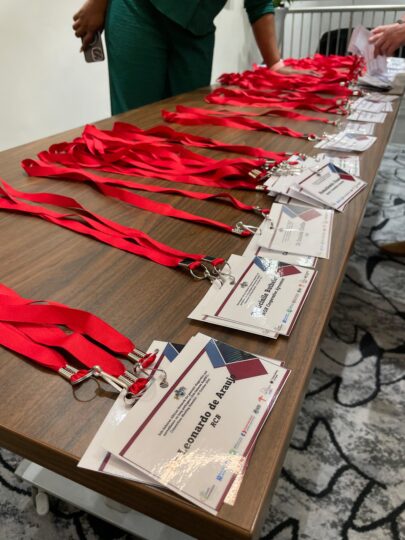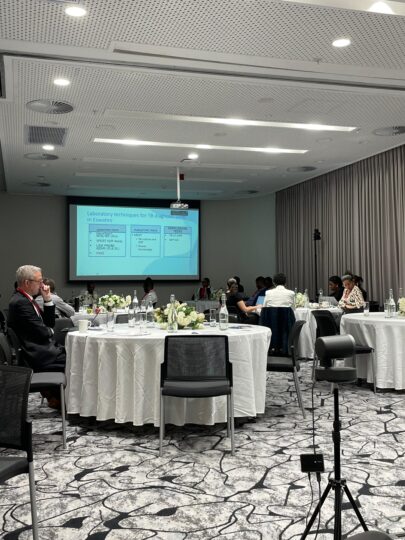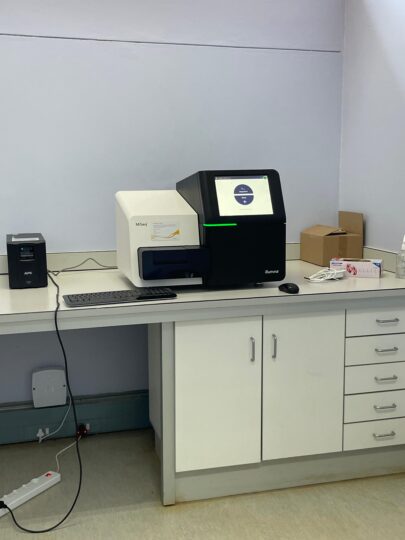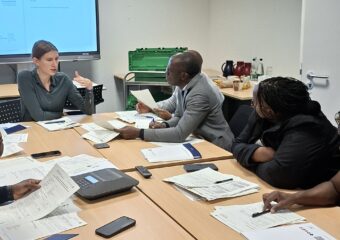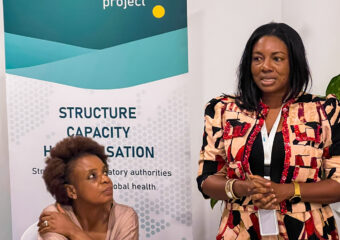Eswatini Leads in Genome-based Diagnostics for Resistant Tuberculosis
At the annual Sub-Saharan SeqNet meeting, Eswatini’s Health Minister highlighted the country’s leadership in adopting genome-based diagnostics for detecting multidrug-resistant tuberculosis.
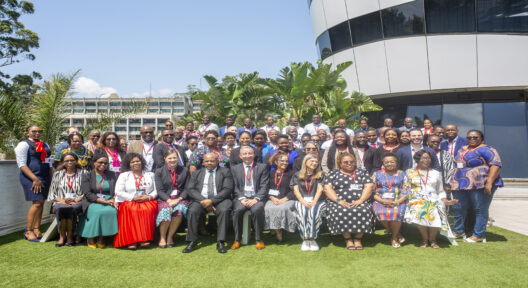
On 25 October 2024, Mbabane, the capital of the Kingdom of Eswatini, hosted the annual meeting of the Sub-Saharan SeqNet Consortium. The event was attended by the country’s Minister of Health, who underscored Eswatini’s leadership in adopting genome-based diagnostics to detect drug-resistant tuberculosis (TB).
According to the World Health Organization (WHO), Eswatini is among the 30 countries with the highest HIV-associated TB incidence globally. The TB crisis in the country is exacerbated by a drug-resistant strain of Mycobacterium tuberculosis that eludes detection by most commercially available TB diagnostic tests. However, recent advances in bacterial DNA sequencing now enable a more precise identification of this mutation and other drug resistances. Thanks to the effort of the Sub-Saharan SeqNet consortium, this cutting-edge technology is now operational at the National Reference Laboratory in Mbabane.
The annual meeting of the Sub-Saharan SeqNet project brought together nearly 100 participants. As part of this, renowned health experts, policymakers, and international partners from Germany, Italy, the USA, Namibia, and Mozambique discussed progress and strategies for addressing one of the most pressing health challenges not only in Eswatini but across the region.
Under the framework of the GHPP, national TB laboratories from Eswatini, Mozambique, and Namibia joined forces with experts from the Research Centre Borstel (Forschungszentrum Borstel; FZB), Ospedale San Raffaele in Italy, and Baylor College of Medicine in the USA. The aim is to establish a network of specialists committed to making modern technologies accessible in African partner countries heavily affected by TB. Over the past five years, the Sub-Saharan SeqNet consortium (formerly SeqMDRTB_Net) has successfully implemented Next Generation Sequencing (NGS) technology. As an essential tool for genome-based diagnosis of drug-resistant TB it shall be used in Namibia, Mozambique, and Eswatini.
This partnership strengthens local capacity through bioinformatics and laboratory training. Furthermore, it helps develop diagnostic guidelines and workflows to ensure effective TB management. Genome-based diagnostics for resistant TB have been successfully introduced at the Instituto Nacional de Saúde in Maputo (Mozambique), the University of Namibia in Windhoek (Namibia) and the National Tuberculosis Reference Laboratory in Mbabane (Eswatini). Technicians, technologists and bioinformaticians at each site are now equipped to perform the entire NGS process independently. This ranges from specimen preparation to data analysis, delivering a comprehensive resistance profile for each patient and tailored treatment options. Our annual consortium meetings have proven to be highly impactful in fostering networking and building trustworthy collaborations among all project partners.
Speaking on behalf of the German Embassy in Pretoria, Dr Anna Montén-Küchel acknowledged at the Annual Meeting in Mbabane Germany’s dedication to global health. She highlighted the Sub-Saharan SeqNet project as a model of international collaboration. ‘This project exemplifies how cooperation among experts across borders can lead to breakthroughs in healthcare and improve health outcomes’, Dr Montén-Küchel said.
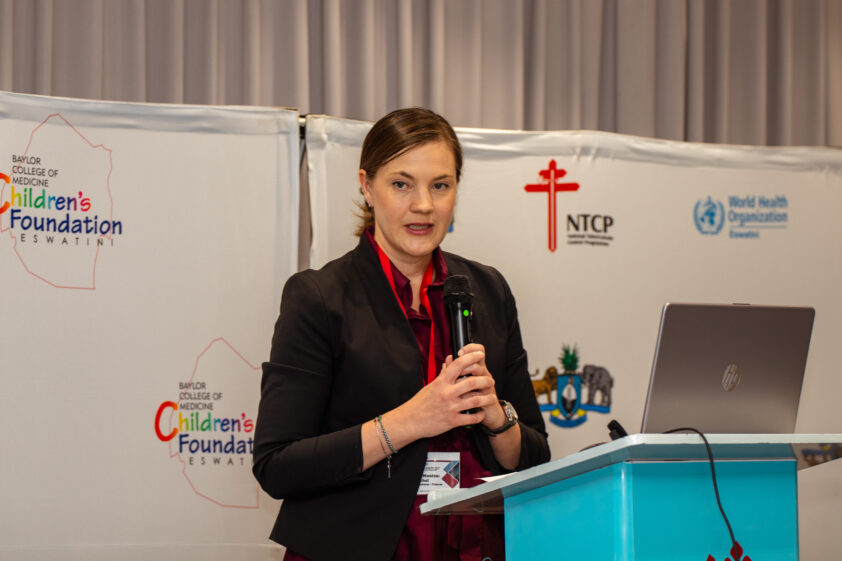
Minister of Health Hon. Mduduzi Matsebula emphasised the significance of the project and said, ‘The initiative marks a transformative step in our fight against tuberculosis in Eswatini. The ability to quickly detect drug-resistant strains enables us to respond more effectively and improve the quality of care for our people.’
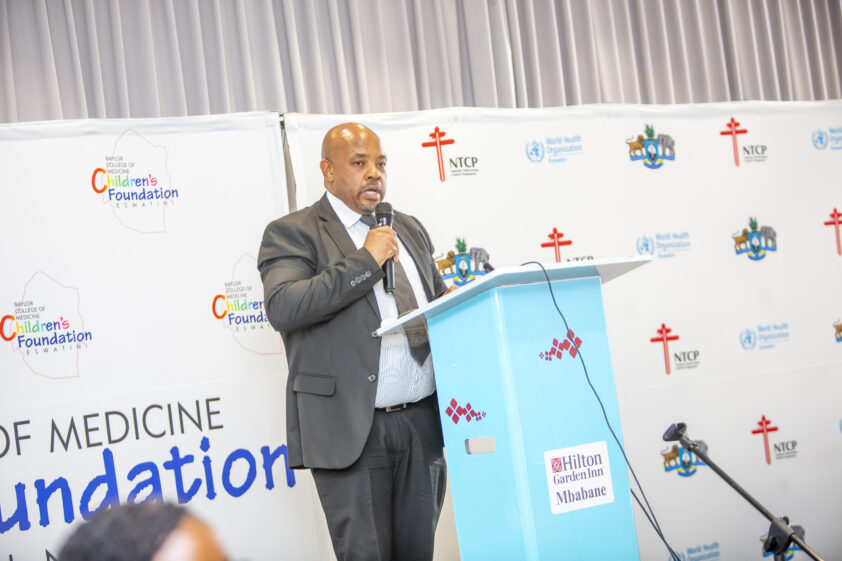
At the end of the morning session, Prof Stefan Niemann, German coordinator of the Sub-Saharan SeqNet, praised the successes achieved to date. Sharing his optimism, he said, ‘NGS-based diagnostics will not only bolster TB management but also aid in responding to emerging global health threats, as seen with SARS-CoV-2.’

The meeting featured a comprehensive programme that included presentations from local collaborators, addresses by authorities, a keynote lecture, and project updates. Participants engaged in discussions focused on implementation, sustainability, future goals, and the continued impact of the Sub-Saharan SeqNet project.
Closing remarks emphasised a strong commitment to ongoing collaboration and investment in advanced diagnostics to combat TB and other infectious diseases, reinforcing the foundation for a resilient global health system. The event concluded with a dinner honouring the contributions of all collaborators, providing a valuable opportunity for networking and team building.

